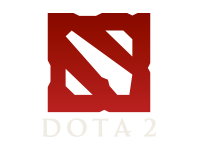One of CS:GO’s unique attributes is the openness of its circuit. Compared to other top tier esports, Counter-Strike has very little developer intervention or calendar restrictions. Periodic lulls exist, but tournaments can be hosted at any time. Obviously the majors play an important role in the competitive scene, but apart from that, Valve has little influence. Even then, their tangible role is limited. For now, CS:GO remains void of any real regulation.
At such a large scale, CS:GO’s hands-off nature is uncommon to say the least. Even Dota 2, another Valve title, has far more dev interaction than CS. This difference is shown most obviously at The International, Dota’s Valve-sponsored world championships. Right from the start, The International is stamped with Valve’s influence. Gabe Newell’s opening speech has become a trademark for the massive event, immediately distinguishing it as Valve’s flagship tournament. And Valve’s control extends beyond just theatrics. From in-game prize pool contributions, to sophisticated roster regulations, to its Seattle location right by their headquarters, TI is undeniably Valve.

The same cannot be said for Counter-Strike. A first-time major viewer would be excused for not recognizing it as a Valve-sponsored event. Unlike Dota, CS:GO majors still feature the brand of their third-party organizers, a telling distinction from the former’s clean, consistent titles. The gap in prize money is perhaps the most obvious sign of favoritism, heavily leaning towards Dota despite similar viewership. Counter-Strike’s rise to the peak of esports popularity has come largely unassisted.
For many, CS:GO’s lack of developer involvement is a boon to the overall growth of the scene. Valve’s resistance to esports regulation has spawned a booming open circuit. In some ways, the size and scope of Dota events has actually decreased the scene’s overall value. The level of grandeur at Valve-sponsored events has taken the awe out of third-party tournaments. The gap between the two has made the latter seem uninteresting, limiting the real excitement to just four teams a year. On the other hand, every CS tournament feels special, creating a non-stop barrage of amazing competition all year round. This constant flow of incredible events has also been formed through Counter-Strike’s fully open circuit. Compared to its sister game, CS has a much more regular flow of premier tournaments. Without the need to schedule around Valve-sponsored events and qualifiers, CS:GO’s more open circuit is populated by a much more consistent calendar of competition.

However, the fully open circuit is more problematic than prosperous. Oversaturation has become an issue in the competitive scene, caused by its unfiltered onslaught leagues and tournaments. DOTA’s small third-party events might struggle to match up against majors, but at least the larger Valve-sponsored championships retain their mind-blowing quality. In a scene with monthly clashes of all the best teams, it’s difficult for any match to feel unique. Oversaturation isn’t just a spectator issue either. Many teams have had to limit their schedules, unable to keep up with the constant travel and pressure that consistent attendance entails. This is a problem that has affected the competitive integrity of the game, solely due to Valve’s unwillingness to control their own scene.
Even worse is the persistence of online leagues. Between EPL and ECS alone, 74 online matches will be played this spring. Online competition is so oversaturated that it has become void of excitement. Apart from budding rosters, hype for league matches is exceedingly rare. The prevalence of leagues and tournaments in the open circuit has turned exciting matches into mundane retreads. The low-stakes environment of these games has made truly thrilling competition almost non-existent. It’s not a secret that pro teams don’t take these leagues seriously. Even with such an exceedingly large sample size, the EPL standings are laughably inaccurate in their reflection of the current scene. As long as teams like Mousesports top the standings, these leagues will remain a useless counter to real competition.

The damaging effects of these leagues go far beyond boredom. They serve as a paperweight, preventing high-value tournaments like ELEAGUE to thrive in this market. At its current state, the CS:GO scene is uninhabitable for offline leagues. Scheduling around the multitude of online leagues and self-contained events is virtually impossible. This acts as a barrier to the development of competitive play. The consolidation of league play would massively improve the state of the CS:GO scene. The regional boundaries that have limited certain teams would be broken, putting all teams on an equal level, regardless of location. The competitive validity of league play would be considerably improved, expanding the limits of one-off tournaments without sacrificing their legitimacy. A singular, offline league would bring stability and security to a scene marred by uncertainty. This is the next step for Counter-Strike.
This is where Valve needs to step in. If left unchecked, minor problems could fester, growing into irreversible damages to the competitive scene. On the one hand, the oversaturation that has flooded CS could continue, numbing its excitement to the point of exhaustion. However, a far scarier possibility is the growth of an unregulated monopoly. As beneficial as a closed circuit could be, it could also bring the death of the scene. If one tournament organizer, unassisted by Valve, could create a closed league, chaos could descend on the competitive scene. Competition would be eradicated, limited to one organizer with no regulation interest in third-party development. Regional or organizational lines could split teams among several exclusive leagues, lowering the overall level of competition. If Valve doesn’t step in soon, CS:GO esports might just fall apart.













